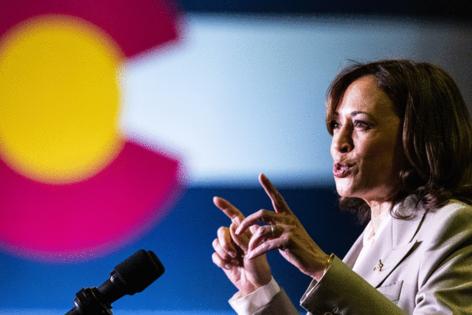Commentary: 'Permitting reform' threatens environmental justice
Published in Op Eds
Almost 35 years ago, the mainstream environmental movement was put on notice. In 1990, the Southwest Organizing Project (SWOP) sent a powerful letter to major environmental organizations such as the Environmental Defense Fund and others exposing their exclusionary practices that omitted and ignored the voices and needs of communities most affected by environmental injustice.
The letter, signed by leaders (including myself) from diverse backgrounds, called out the mainstream environmental movement for advancing policies that often sacrificed the needs of communities of color in exchange for conservation “wins.” Its message was clear: True environmental progress cannot be made on the backs of the most vulnerable.
Much has changed in the past 35 years. We have fought to reshape environmental policies to reflect not just the need to reduce greenhouse gas emissions to fight climate change, but also to address the disproportionate impacts of fossil fuel infrastructure and harmful pollutants on marginalized communities.
In April 2023, the Biden administration issued an executive order to create an ambitious full-government response to address environmental injustices and prioritize investments in historically marginalized communities. Additionally, the administration’s Justice40 initiative aspires to dedicate 40 percent of climate and environmental funding to marginalized communities. In Congress, the A. Donald McEachin Environmental Justice For All Act, originally sponsored by then-Sen. Kamala Harris, has yet to pass but now enjoys broad support from mainstream environmental and environmental justice organizations alike.
But some voices in Congress threaten that progress. Senators Joe Manchin and John Barrasso have introduced the Energy Permitting Reform Act of 2024, a dangerous legislative package that would force the government to give sweetheart deals and handouts to polluting industries for modest clean energy infrastructure wins.
This bill, which passed out of the Senate Energy and Natural Resources Committee with bipartisan support, now awaits floor action. It seeks to accelerate the permitting process for all energy projects and proposes sweeping changes to how energy projects are approved, prioritizing speed over thorough environmental review and community input. It also limits judicial review and expedites permits for fossil fuel projects — at the expense of the communities already living with the disproportionate impacts of energy production.
Together with other so-called “permitting reform” efforts, this bill effectively silences the voices of those most impacted by fossil fuel projects by restricting their ability to challenge harmful decisions in court. This is particularly dangerous for communities of color and low-income neighborhoods, which have historically been targeted for the placement of polluting industries.
These permitting reform efforts don’t move us forward; they are a major step backward. They disregard the hard-won gains of the environmental justice movement and threaten to reverse our progress in creating a more just and sustainable future. They mark a return to the old ways of thinking, where environmental policies were crafted in boardrooms and backrooms of power without any regard for the lives they would affect.
Moreover, the bill’s emphasis on fossil fuel development, including coal and offshore oil and gas leasing, ignores the urgent need to transition to clean, renewable energy sources. It is a stark reminder of the priorities of those who continue to put corporate profits above the health and well-being of our communities.
We cannot afford to go backward. The stakes are too high. Our planet is in crisis, and so are our communities. We need policies moving us toward a future where environmental protection and justice go hand in hand.
In my work, from organizing in the South Valley of Albuquerque, New Mexico, to demanding action in the halls of the White House, I’ve seen the horrors of environmental injustice. But I’ve also seen and felt the empowerment that accompanies communities using the power of the law to not only stop polluting projects, but work within a legal framework to make projects incorporate their voices, needs and experiences.
These current efforts in Congress do not share that spirit, and I urge our leaders to wholeheartedly reject them. The bright future on the horizon is for all of us, and it’s our leaders’ responsibility to ensure that it is built on a strong foundation of justice, equity and sustainability.
____
Richard Moore is co-chair of the White House Environmental Justice Council and co-coordinator of Los Jardines Institute. This column was produced for Progressive Perspectives, a project of The Progressive magazine, and distributed by Tribune News Service.
___
©2024 Tribune Content Agency, LLC.




























































Comments